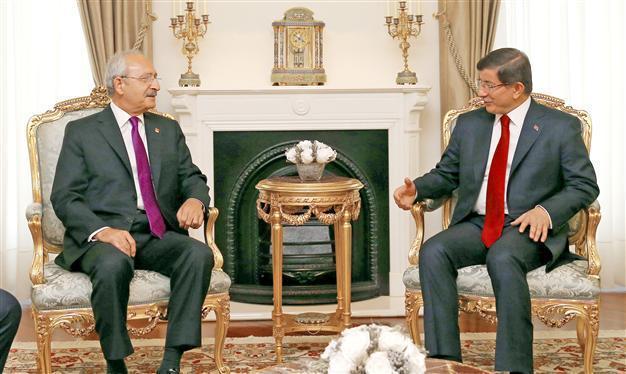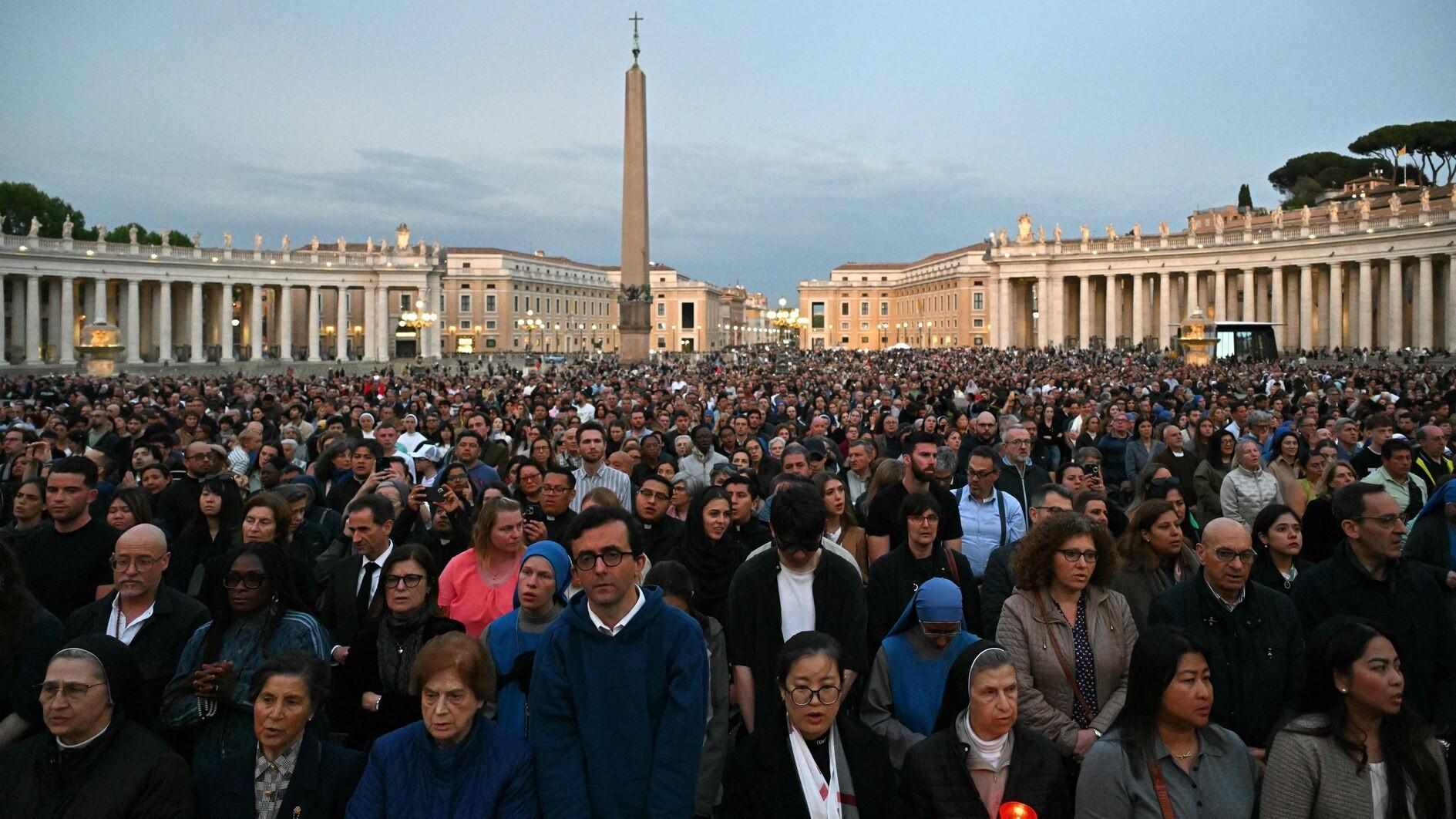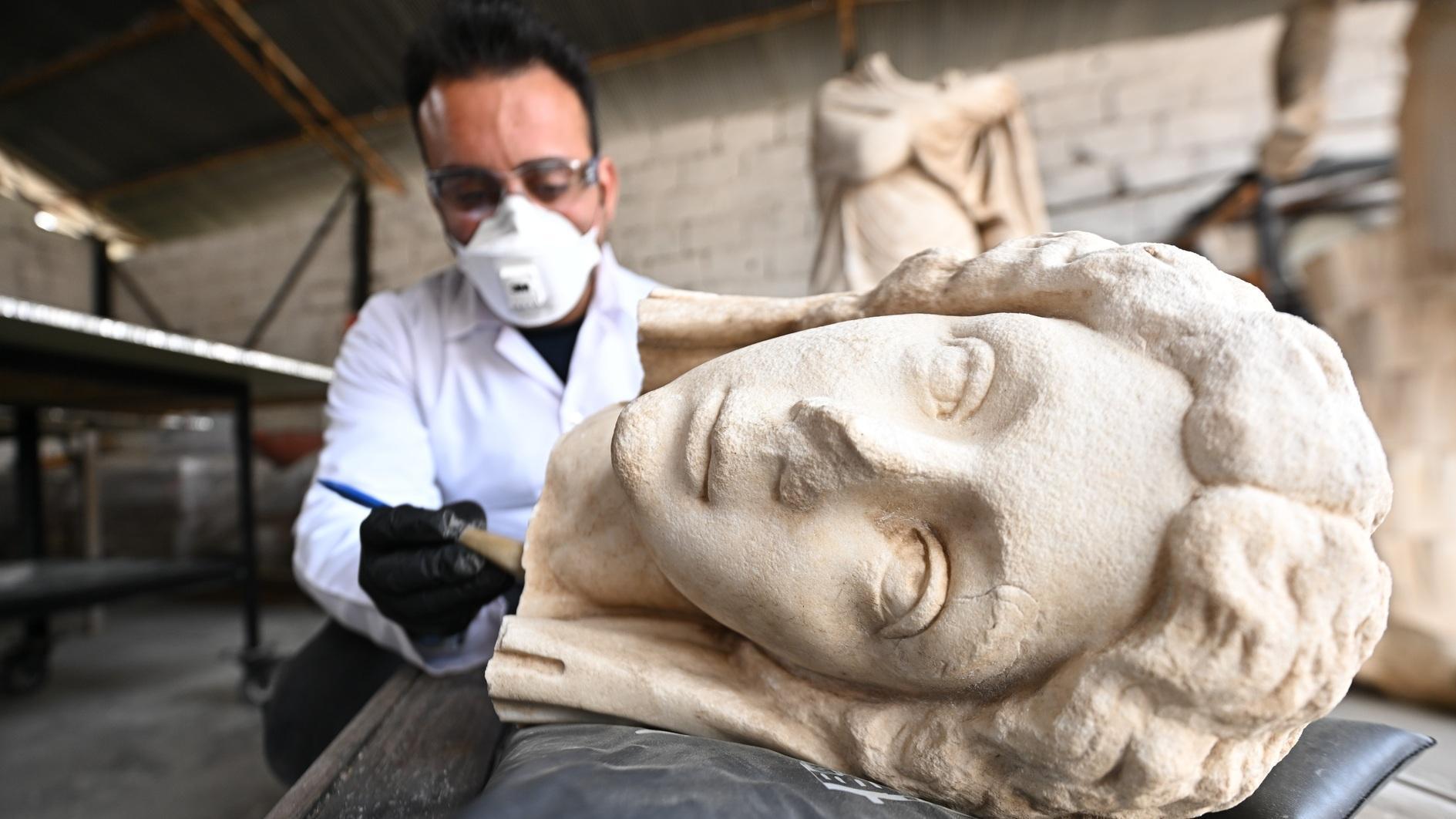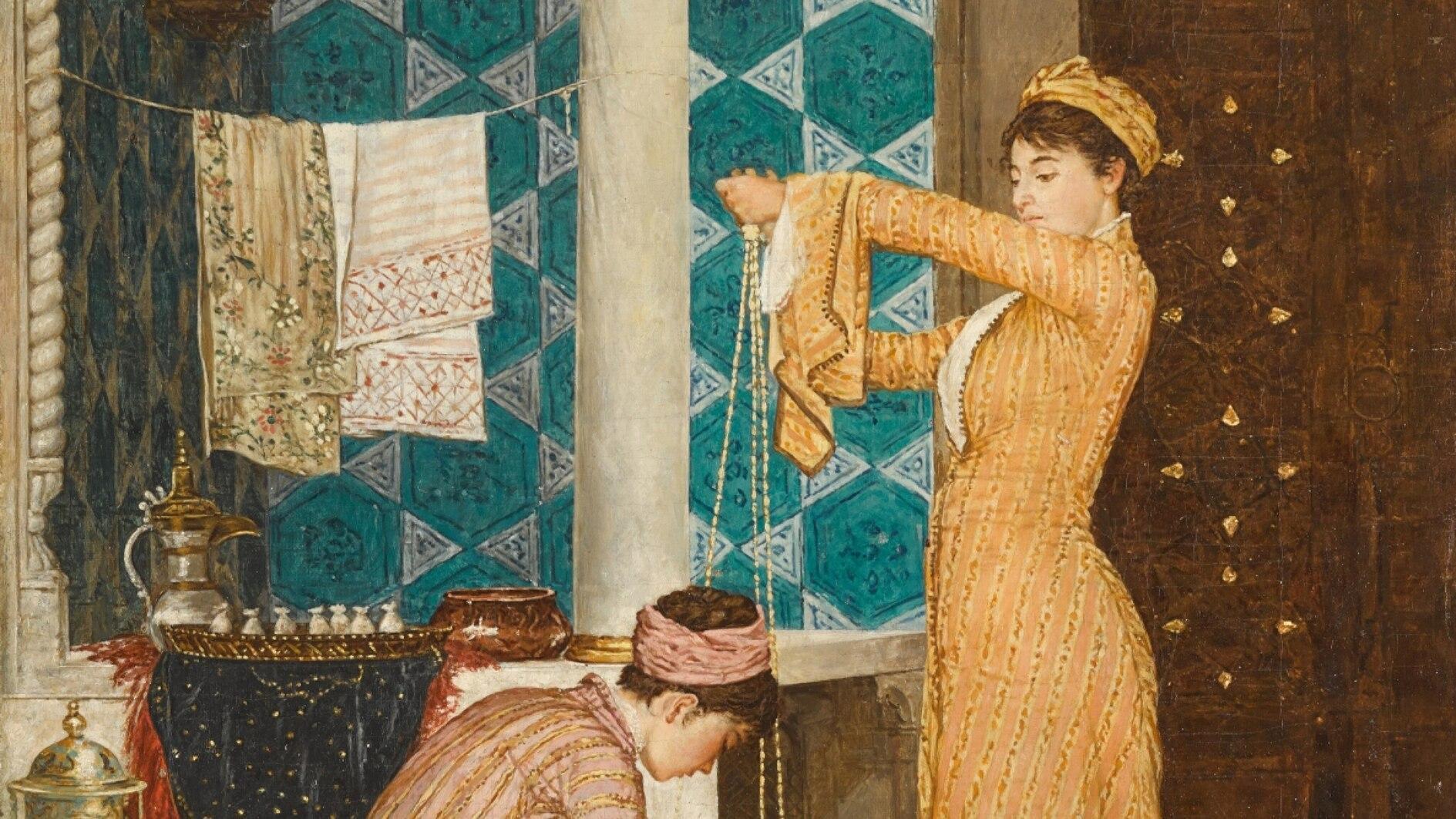Final countdown for AKP-CHP coalition
Deniz Zeyrek - ANKARA

AA photo
Although the leaders of the Justice and Development Party (AKP) and the Republican People’s Party (CHP) failed to produce a breakthrough on a coalition agreement at their Aug. 10 meeting, they made progress on content, leaving aside the contentious issues of tenure and the model of a possible government partnership, which are to be addressed at their next rendezvous scheduled for Aug. 13.The meeting between the AKP leader, incumbent Prime Minister Ahmet Davutoğlu, and CHP leader Kemal Kılıçdaroğlu on the evening of Aug. 10 went on for longer than four hours. The first coalition meeting between the two leaders took place on July 13, as part of the first round of coalition talks after Davutoğlu was given the mandate to form a government by President Recep Tayyip Erdoğan on July 9.
During the lengthy meeting, the CHP refused the idea floated by the AKP of a minority government and a government aimed at taking Turkey to an early election, reportedly favoring a four-year long “resolution government” made up of the AKP and the CHP.
Since the July 13 meeting, lower-ranking party officials held a series of meeting, which Davutoğlu described as “exploratory talks.” Topics already discussed during five sessions of “exploratory” talks, amounting to 35 hours in total, dominated the agenda of the meeting between Davutoğlu and Kılıçdaroğlu, during which they were accompanied by Culture and Tourism Minister Ömer Çelik and CHP Deputy Chair Haluk Koç.
“The two chairmen will meet again this week on Aug. 13 or Aug. 14, depending on their schedules. Will there be a coalition or not? A clear answer to that question will be given after that meeting,” Çelik, who has been leading the lower-level negotiations for the AKP, told reporters late on Aug. 10.
On Aug. 11, Çelik then announced via his Twitter account the exact date of the meeting as Aug. 13, saying the venue would be the historic Ankara Palace.
Tenure and model
The two leaders reportedly discussed the constitution, freedoms, the peace process aimed at ending the there-decade conflict between Turkey’s security forces and militants of the outlawed Kurdistan Workers’ Party (PKK), education, foreign policy, and the mooted but contentious presidential system.
The most controversial issue on which the two sides have been unable to reach a consensus was the tenure and model of any potential coalition partnership. Refuting the AKP’s hope for a short-term minority government to lead to fresh elections, CHP head Kılıçdaroğlu said his delegation emphasize a coalition model that would be able to resolve Turkey’s “chronic problems.” He said he wanted such a government to be in power for a full four years until the next parliamentary elections.
For his part, while testing the waters for a limited-tenured coalition government program, which would be given an agenda and protocol involving various reforms, Davutoğlu avoided citing an exact period of tenure. The AKP is expected to present its proposal during the upcoming Aug. 13 meeting.
A written statement was released after a Central Executive Board (MYK) meeting of the CHP held on Aug. 11. During the meeting, the MYK fully authorized Kılıçdaroğlu to form a coalition government.
The MYK expressed its “will for forming of a coalition government with a vision for at least four-years,” adding that it must be “reform-oriented, high-profile and based on wide grassroots,” the statement said.
Accordingly, the MYK particularly emphasized need for an urgent solution to “five fundamental problematic fields”: Foreign policy, the economy, a new constitution, education, and social peace.
During their meeting, the two leaders did not discuss allocation of ministries, as they are expected to proceed to that phase only after reaching a final decision for partnership. On this issue, the CHP wants a balanced representation of coalition partners at the National Security Council (MGK), which brings together Turkey’s civilian and military leaders.
In addition to prime minister and deputy prime ministers, the ministers of justice, defense, interior and foreign affairs are all members of the influential top body.
Rather than a basic number of ministries in a potential cabinet, the CHP is focused on the clout of ministries to be held by his party. As a result, the issue of which partner holds the interior, justice and education ministries will be a key component of coalition bargaining. The foreign ministry portfolio, meanwhile, is expected to be held by the junior partner of the government, that is to say the CHP, in line with customs.
Foreign policy and responsibility
The two leaders have long been harshly critical of each other’s foreign policy views, particularly with regard to the Syria conflict. Kılıçdaroğlu told his counterpart that a fundamental change is required in Turkey’s Middle East policy, but he also underlined that as a partner of a coalition government, the CHP would not act independently and would obey to policies drawn with common sense by state bodies such as the MGK.
The leaders of the two parties, which got the highest number of votes in the June 7 election, also touched upon another contentious issue on which they have fundamental differences of views: Education.
Kılıçdaroğlu reportedly assured that his party had no intention of closing down the religious vocational İmam Hatip high schools.
“We want an education model that will build infrastructure to get Turkey out of the middle income trap and upgrade technology and production. We are interested in the curriculum, but not with the model,” Kılıçdaroğlu told Davutoğlu.
Meanwhile, Davutoğlu reportedly offered gratitude to Kılıçdaroğlu for his clear stance in favor of the recent lifting of the ban on wearing headscarves in public spaces - a highly contentious issue until recently.
Whose hands are freer?
Kılıçdaroğlu has already found support from his party’s administrative bodies for taking an initiative on the coalition government. But Davutoğlu’s hands are not as free as of Kılıçdaroğlu’s, as the AKP’s grassroots are known to be widely skeptical about the idea of any partnership with the CHP, particularly amid objections from President Erdoğan and his inner circle.
Davutoğlu has a limited time to persuade his party’s administration and Erdoğan, as well as AKP grassroots, if he wants to have a strong hand in presenting a concrete partnership proposal to Kılıçdaroğlu on Aug. 13.
















